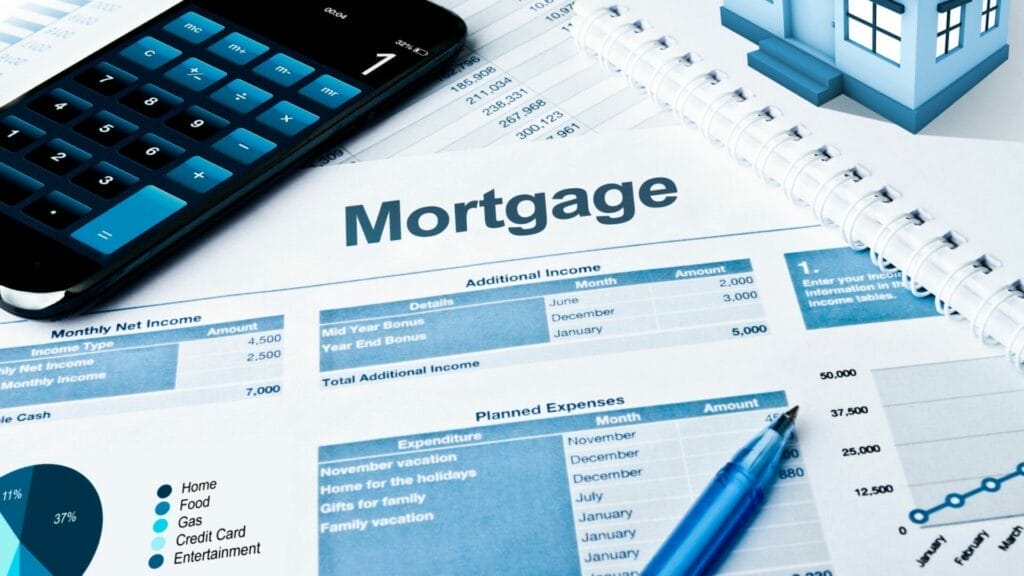
Can You Refinance Commercial Real Estate and Keep the Same Interest Rate?
Refinancing commercial real estate (CRE) generally means replacing an existing mortgage with a new one, potentially with different terms, interest rates, and amounts.
Can you refinance commercial real estate and keep the same interest rate? The possibility of refinancing CRE and keeping the same interest rate depends on various factors, including the current market conditions, the creditworthiness of the borrower, the value of the property, and the terms of the existing mortgage.
This article looks closer at what it takes to refinance your commercial property and what some of the other options available to you are.

Table of Contents
Key Takeaways
- Owners can keep their existing interest rate through strategies like securing fixed interest rates and engaging in rate-and-term refinancing.
- The success of these strategies hinges on market conditions and the relationship with the lender.
- Owners have a variety of refinancing options, including traditional bank loans, SBA loans, CMBS loans, bridge loans, hard money loans, life insurance company loans, and government and agency loans.
- Each option caters to different needs, offering flexibility in terms of interest rates, loan terms, and repayment structures.
- Selling offers an alternative route for commercial real estate owners, providing liquidity and the opportunity to realign investment strategies in response to market shifts or personal financial goals.
Why Refinance Commercial Real Estate?
Refinancing commercial real estate (CRE) can be a strategic move for property owners and investors looking to optimize their financial portfolio, address changes in their financial circumstances, or take advantage of shifts in the market. To improve cash flow and secure a lower interest rate, many owners look to refinance commercial property. Below are key reasons why CRE owners might consider refinancing:
- Lower interest rates: Reduce monthly payments and enhance cash flow.
- Equity access: Liquidate equity for investment or expenses.
- Term adjustments: Optimize loan terms for better financial management.
- Debt consolidation: Simplify finances and improve cash flow.
- Avoid balloon payments: Manage large end-term payments effectively.
- Market opportunities: Leverage favorable market conditions.
- Loan features: Secure predictable monthly payments with fixed-rate loans.
For commercial property owners, the decision to refinance should be based on a comprehensive analysis of their current financial situation, market conditions, and long-term investment objectives.
Consulting with financial advisors and commercial refinance lenders can provide valuable insights and guidance through the refinancing process, ensuring that the decision to refinance maximizes the benefits to the commercial real estate investor.

Keeping the Same Interest Rate When Refinancing CRE
Refinancing commercial real estate can often lead to changes in your interest rate. Yet, there are scenarios where keeping your rate similar is possible.
- Fixed Interest Rates: Holding a fixed-rate loan might allow you to maintain your rate if:
- Market rates stay steady.
- Your lender offers a special refinancing deal.
- However, such cases are rare.
- Rate-and-Term Refinancing: This strategy involves:
- Refinancing your loan’s remaining balance.
- Lowering the interest rate.
- Altering the loan term.
- If current market rates align closely with yours, a similar rate might be achievable. Remember, refinancing fees could affect overall savings.
- Relationship with Lender: A strong rapport with your lender may lead to favorable terms, including keeping your existing rate. Success here hinges on the following:
- Effective negotiation.
- The lender’s flexibility.
Example Scenarios:
- A commercial property owner with a fixed-rate loan at 4% seeks to refinance. Despite market fluctuations, they secure a similar rate through a lender’s loyalty program.
- An investor refinancing to extend their loan term finds that current interest rates match their original 5%. They negotiate minimal fees, making refinancing advantageous.
- A small business owner with a strong payment history on their commercial property loan discusses refinancing options with their bank. Leveraging their relationship, they maintain their interest rate while adjusting their loan term for better cash flow.
In each case, the ability to keep a similar interest rate while refinancing hinges on specific factors like market conditions, loan features, and lender relationships.

CRE Mortgage Options
When exploring financing for commercial real estate, understanding the number of CRE mortgage options is crucial. Each type of loan offers unique benefits and considerations tailored to meet different needs and situations of commercial property owners and investors.
From traditional bank loans to more specialized financing like SBA loans and CMBS loans, selecting the right mortgage can impact your cash flow, property value, and long-term investment strategy.
- Traditional Bank Loans: These are foundational options for financing commercial properties with fixed or variable interest rates. Terms can extend from 5 to 20 years, often culminating in a balloon payment. It is ideal for those seeking conventional financing routes.
- SBA Loans: Tailored for small businesses, the 504 and 7(a) programs support commercial real estate purchases with competitive rates. These government-backed refinance loans are designed to aid qualifying businesses in securing commercial properties.
- CMBS Loans: Commercial Mortgage-Backed Securities provide liquidity to the real estate capital markets, offering fixed rates over extended periods. They’re notable for their strict prepayment penalties, catering to investors looking for long-term, stable financing.
- Bridge Loans: For immediate financing needs, bridge loans offer a temporary solution with higher interest rates. They’re particularly useful for commercial real estate investors requiring quick capital before securing long-term financing.
- Hard Money Loans: These loans are based on property value rather than borrower creditworthiness, featuring higher rates and shorter terms. They’re a go-to for projects not eligible for traditional commercial loans, offering fast, asset-based financing.
- Life Insurance Company Loans: Known for low-interest rates and lengthy loan terms, these are suited for prime, stable commercial real estate projects. They represent a less conventional but attractive option for high-quality investments.
- Government and Agency Loans: Insured or provided by government entities like HUD, these loans offer favorable terms for projects like multifamily housing, enhancing the property value and investment potential.
Navigating CRE mortgage options requires a strategic approach, considering each loan’s impact on your commercial property’s cash flow, equity, and monthly payments. By carefully selecting the right commercial real estate financing, property owners and investors can optimize their portfolios, ensuring long-term growth and stability in the competitive real estate market.
As you consider your commercial property refinancing or purchasing options, assess how each loan aligns with your investment goals and financial health. Whether you’re aiming to improve cash flow, secure lower interest rates, or leverage equity for expansion, the right CRE mortgage option can pave the way for your success in the dynamic world of commercial real estate.
Considering Selling Your Commercial Real Estate Property
While refinancing is a common strategy for managing commercial real estate (CRE), selling your property is another viable option that can offer its own set of benefits. Whether it’s due to changes in the market, a shift in your investment strategy, or the desire to capitalize on increased property value, selling your commercial property can provide a significant influx of capital and open up new investment opportunities.
Advantages of Selling:
- Liquidity: Selling your property converts your investment into liquid cash, which can be used to reduce debt, invest in higher-performing assets, or diversify your portfolio.
- Market Timing: If the commercial real estate market is particularly favorable, selling can maximize your return on investment.
- Simplification: Selling off properties can simplify your portfolio management, especially if managing the property has become too time-consuming or costly.
When to Consider Selling:
- Property Value Increase: If your commercial property has significantly appreciated in value, selling could yield a substantial profit.
- Changing Market Conditions: Shifting economic or market conditions may suggest that selling is a prudent decision to avoid future risks.
- Portfolio Rebalancing: Selling can be a strategic move to rebalance your portfolio in line with your current investment goals and risk tolerance.

Seamless Sales with Point Acquisitions
When selling your commercial real estate property, partnering with Point Acquisitions offers a streamlined and beneficial experience. We specialize in making the sale of your CRE assets straightforward and profitable, emphasizing speed, fairness, and expertise in every transaction. Our commitment to excellence ensures that you, as a property owner, can transition smoothly to your next investment opportunity.
Benefits of Working with Point Acquisitions:
- Competitive Offers: At Point Acquisitions, we pride ourselves on providing offers that reflect the true market value of your commercial property, ensuring you receive a fair and attractive price.
- Efficient Process: We understand the value of your time. Our process is optimized for speed, aiming to complete transactions quickly without compromising on thoroughness or quality.
- CRE Expertise: Our team is deeply entrenched in the commercial real estate market, bringing a wealth of knowledge and insight to every deal. This expertise allows us to handle complex sales with ease, offering you peace of mind throughout the process.
Your Next Step
Considering selling your commercial real estate? Reach out to Point Acquisitions. We’re here to provide a competitive offer and facilitate a smooth, efficient sale. Unlock the value of your CRE investments with a partner who understands your needs and the nuances of the market. Let’s make your next transition as rewarding as possible.
Summary
Understanding your options for refinancing or selling is crucial to maximizing your investment’s potential. Whether you’re aiming to improve your cash flow, adjust your loan terms, or capitalize on your property’s increased value, the right strategy can significantly impact your financial success.
Refinancing presents a range of options to suit various needs, from lowering interest rates to accessing equity. However, selling your property might be the best move to unlock immediate capital and pivot your investment strategy in response to evolving market conditions.
As you consider the next steps for your CRE assets, remember that making informed decisions is key to achieving your investment goals. For those contemplating selling their commercial real estate or simply seeking advice on navigating the complex CRE market, Point Acquisitions stands ready to assist.
Contact Point Acquisitions today for a quick, competitive offer on your CRE property or for further expert advice tailored to your unique situation. Let us help you make the most of your commercial real estate investments with our industry knowledge, commitment to fair dealing, and dedication to facilitating smooth and efficient transactions.
Your journey to optimizing your CRE portfolio begins with a conversation—Contact us and take the next step toward realizing your investment’s full potential.

FAQs
What is a refinance loan for commercial property?
A refinance loan replaces an existing loan on a commercial property, offering better terms, lower interest rates, or a different loan amount to suit the owner’s current financial needs.
How does refinancing a commercial property affect my loan amount?
Refinancing a commercial property can adjust your loan amount based on your property’s current value, your net operating income, and the amount of equity you’ve built. It might increase if you opt for a cash-out refinance to access equity.
What is net operating income’s role in commercial real estate loans?
Your net operating income (NOI) is crucial in determining the loan amount and terms for commercial real estate loans, as it reflects the property’s profitability and ability to cover loan payments.
Can I get a cash-out refinance on commercial property loans?
Yes, a cash-out refinance allows you to tap into your property’s equity above the balance of your existing loan, providing liquidity for investments, improvements, or other expenses.
What are equity disbursement refinancing loans?
Equity disbursement refinancing loans are a type of commercial property refinance loans that enable property owners to access the equity built up in their property, often resulting in a larger loan amount than the existing loan.
What should I consider when refinancing a commercial property?
When refinancing a commercial property, consider the new loan amount, interest rates, terms, how it affects your net operating income, and whether a cash-out refinance aligns with your financial strategies.
About The Author

Jesse Shemesh
Disclaimer
Please note that Point Acquisitions is not a tax expert or tax advisor. The information on our blogs and pages is for general informational purposes only and should not be relied upon as legal, tax, or accounting advice. Any information provided does not constitute professional advice or create an attorney-client or any other professional relationship. We recommend that you consult with your tax advisor or seek professional advice before making any decisions based on the information provided on our blogs and pages. Point Acquisitions is not responsible for any actions taken based on the information provided on our blogs and pages.
1031 Exchange Capital Gains Tax Deferral
According to a 2021 report by the National Real Estate Exchange Services (RES), over 240,000 1031 exchange transactions were completed in the United States, totaling $100 billion. This impressive figure underscores the role of 1031 exchanges in the real estate…
Read More1031 Exchange Benefits
As of Q4 2023, the national vacancy rate for all commercial property types in the United States sat at 9.2%, according to CBRE’s latest insights and research. This represents a slight decrease compared to the previous quarter and suggests a…
Read More1031 Exchange Legal Considerations: A Must-Read Guide
You’re in the right place if you’re considering a 1031 exchange for your commercial real estate investments. Whether you’re a seasoned investor or just dipping your toes into the market, understanding the legal landscape of 1031 exchanges is key to…
Read More

